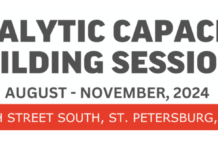By Congressman James E. Clyburn (D-SC), House Majority Whip
Higher education should be a staircase to economic mobility, but student loan debt has become a barrier for far too many. More than $1.6 trillion in outstanding federal student loan debt is crushing 43.4 million borrowers in the United States today. Millions can’t afford to buy a home, start a business, or save for retirement.
That is why President Biden, at the urging of yours truly and many others, campaigned on addressing student loan debt. He promised to provide targeted student loan debt relief to working- and middle-class families, and he has delivered.
The student loan debt repayment pause – precipitated by Covid-19 – ends on December 31st. Consequently, come January 2023, borrowers are required to restart repayments of their student loans. Understanding that the re-payment pause temporarily provided much needed relief to overburdened borrowers, the Biden-Harris Administration has announced new plans for targeted debt relief to make the student loan system more manageable for working families.
Last month, President Biden announced up to $20,000 in federal student debt forgiveness to Pell Grant recipients and up to $10,000 in federal student debt forgiveness to non-Pell Grant recipients. Borrowers who earn less than $125,000 per year or households earning less than $250,000 are eligible for debt relief.
The Administration is also making the student loan system more manageable for current and future borrowers by improving the income-driven repayment plan that will substantially reduce future monthly payments for lower- and middle-income borrowers. They are changing the rules to lower income-driven repayment plans from 10% of discretionary income to 5%. The rule change will also raise the amount of income that is considered non-discretionary, therefore protecting it from repayment. This guarantees that no borrower earning the annual equivalent of a $15 minimum wage will have to make a monthly payment.
This help is going to be life-changing for millions of working people. Many of the 43 million Americans who hold federal student loan debt will receive some amount of debt forgiven. About 27 million borrowers will see $20,000 knocked off their student loan balance. For 20 million borrowers, that’s enough to totally wipe out their entire student loan balance. These latest actions build on the steps the Biden-Harris Administration has already taken to provide over $32 billion in loan relief to 1.6 million borrowers.
In 2021, the U.S. Department of Education announced it was discharging $6 billion in loans to settle a class action lawsuit filed against the agency for its handling of the Borrower Defense Repayment program under the Trump Administration. This program provides debt relief for borrowers defrauded by for-profit institutions like the now defunct Trump University. The Biden Administration’s new rules make it easier for those harmed by predatory marketing and recruiting practices to receive debt relief. As a result, the agency received 60,000 applications in just one week after the announcement compared to only 100,000 applications in all of 2021.
Finally, President Biden made some temporary changes for applicants to the Public Service Loan Forgiveness Program because in 2017, the first year that borrowers could apply for forgiveness only 1 percent were approved. On October 6, 2021, Biden’s Department of Education announced modifications to the program and a time-limited waiver so that more students could be eligible and more realistic repayment plans could be implemented. This includes loan types and payment plans that were not previously eligible.
As a result, over 175,000 borrowers have received over $10 billion in forgiveness due to their work in the public sector in professions including teachers, nurses, social workers, service members in our military, and first responders. The deadline to apply under the time-limited waiver is October 31, 2022, so if you believe you are eligible, I encourage you to visit https://studentaid.gov/ and search for the Public Service Loan Forgiveness Program.
These actions by President Biden will help narrow the racial wealth gap. Over 50% of Black borrowers report their net worth is less than they owe in student loan debt. Also, Black students are more likely to borrow, and borrow larger amounts, relative to other racial or ethnic subgroups. Black college graduates owe an average $25,000 more in student loan debt than white college graduates. Four years after graduation, 48% of Black borrowers owe an average of 12.5% more than they borrowed.
By providing relief from this disproportionate and crushing debt, we are giving the next generation the opportunity to pursue the American dream and provide a life for themselves and their families that they have earned through hard work and the pursuit of a higher education.
We have all heard the saying that a rising tide lifts all boats. I believe that these efforts by the Biden Administration not only help to lift boats, they also put wind in their sails to help move us closer to the promise of “a more perfect Union.”
The post OP-ED: Relieving the Burden of Student Loan Debt first appeared on BlackPressUSA.

















